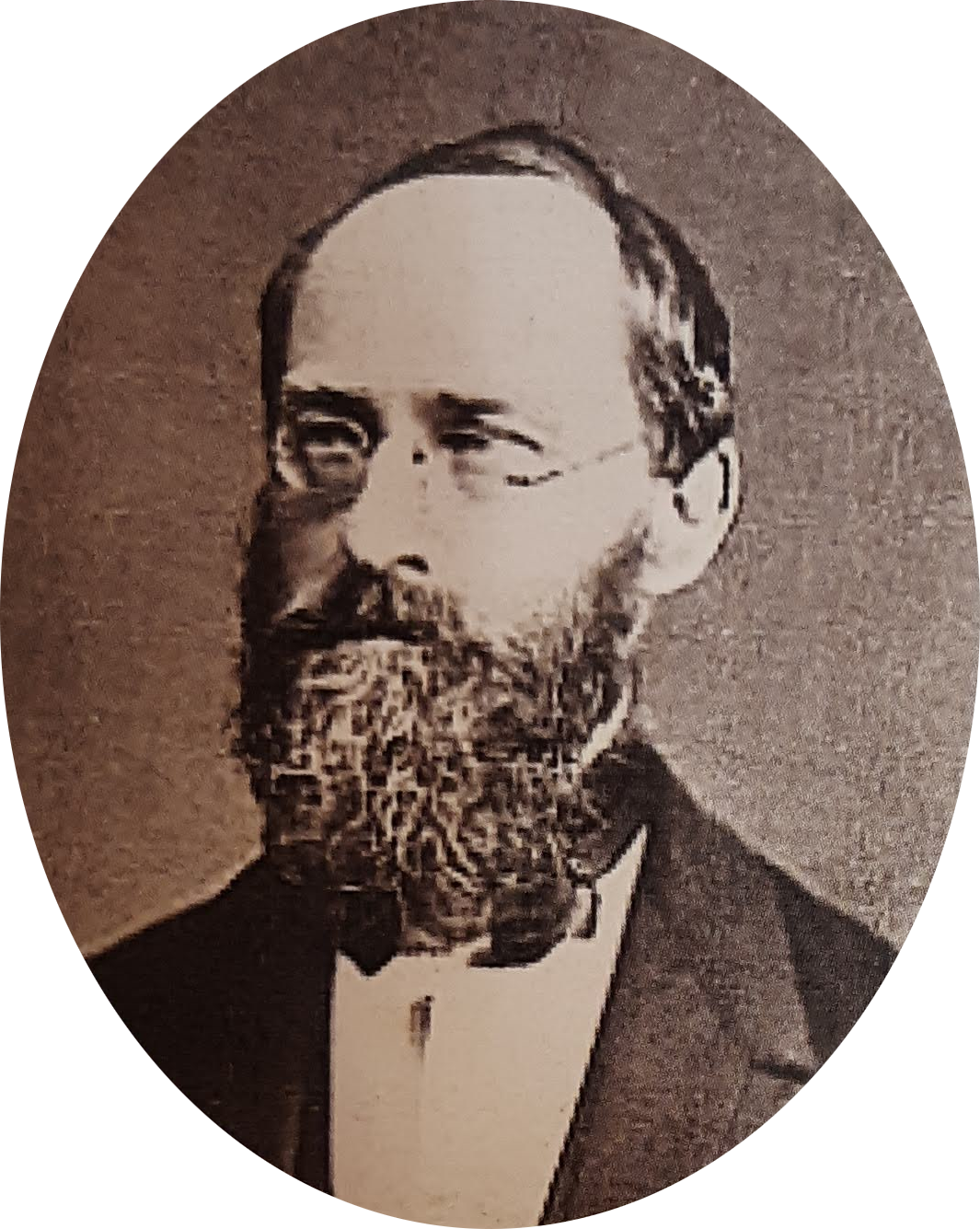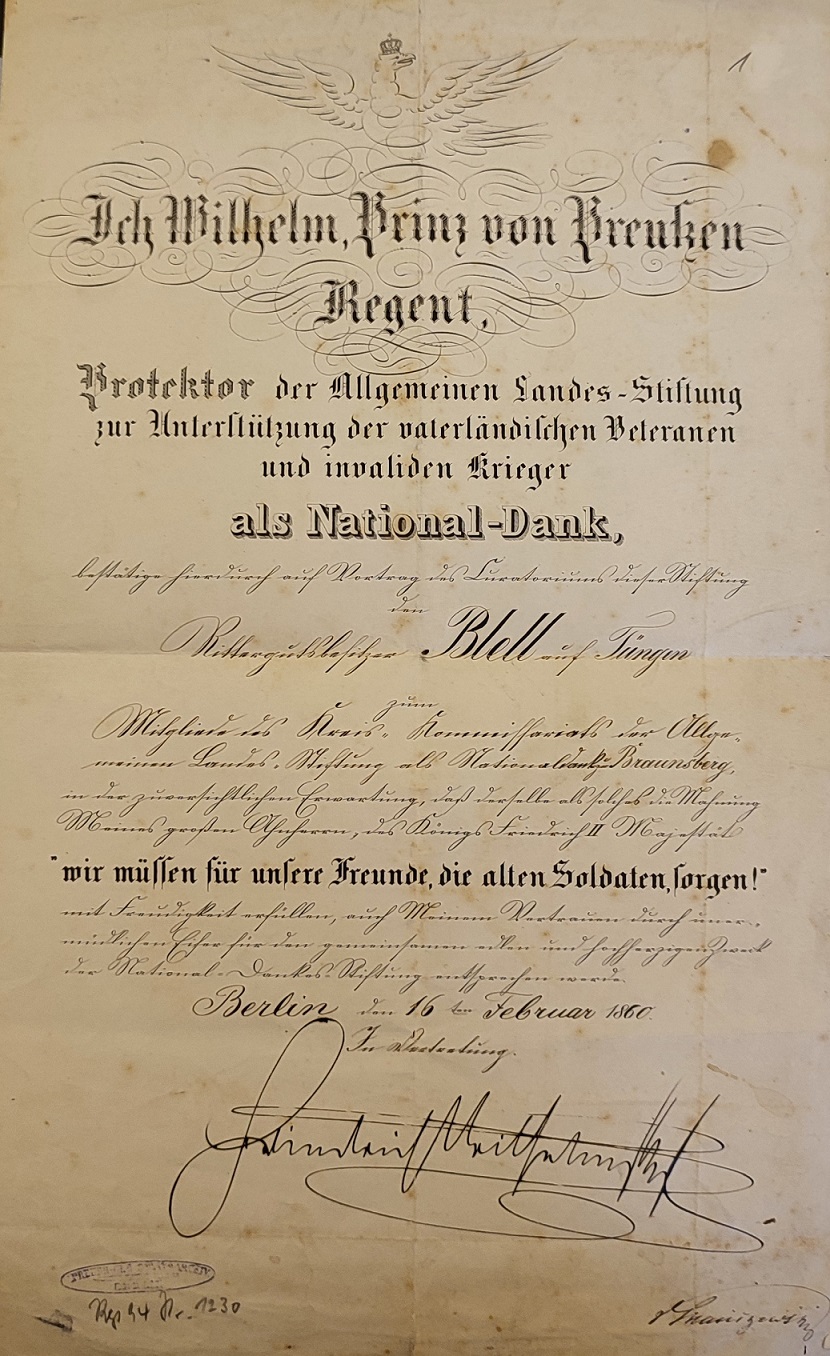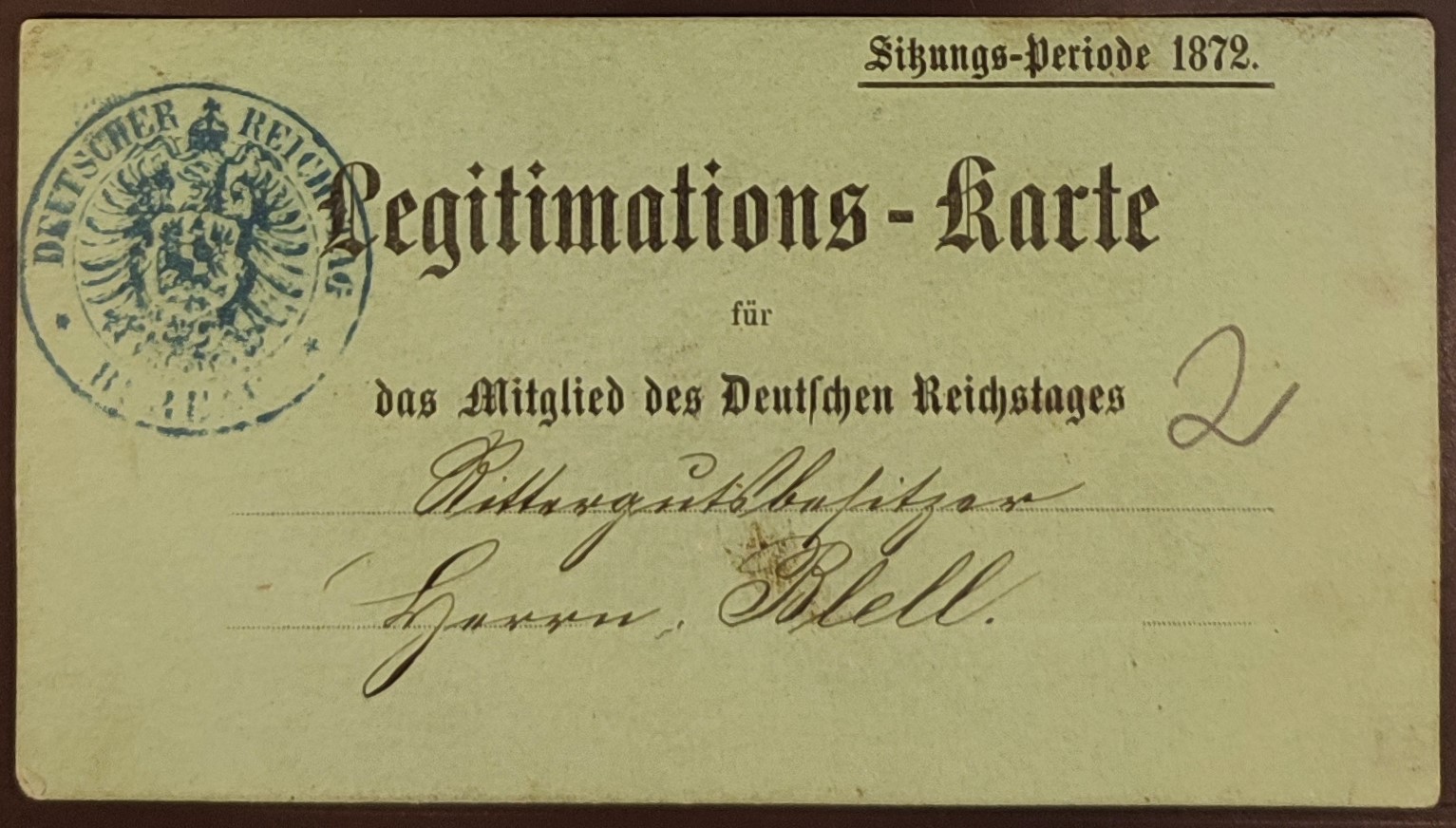Theodor Joseph Blell (December 28, 1827–1 June 1902), lawyer, landowner, social and political activist, and collector.
He was born in Królewiec, in a wealthy merchant family. His parents were Peter Johann Blell and Julia Silberbach. Theodor’s father was also a church commissioner, probably in the Catholic parish of St. John the Baptist, as evidenced by the fact that he himself was a Catholic. In the years 1839–1849 he attended middle schools in Królewiec and Chełmno. Between 1849 and 1853, he began studying law at the universities of Królewiec, Heidelberg and Wrocław.
During his studies, he traveled to Switzerland, Italy, France and Austria. In the Heidelberg period, he encountered archaeological practice, taking an active part in excavations in the area of the former Roman settlement in Weisloch near Heidelberg (Baden-Württemberg). Probably this experience, combined with the purchase of a group of quite typical artistic and historical souvenirs during his stay in Italy, was a factor that stimulated his collector’s interests. Blell started his collector activity as a well-to-do and educated 24-year-old. He had all the instruments and skills to develop this passion, i.e., he had the resources to acquire monuments, he was able to identify and classify them, he was able to assimilate new findings of researchers on an ongoing basis, which over the years allowed him to build a collection with significant cognitive potential.
After returning to his hometown, he worked as a trainee at the appellate court in Królewiec. In 1855, he inherited a property in Warmia, acquired by his father. In the town of Bogatyńskie (German: Tüngen) near Orneta, he undertook the reconstruction of the late-baroque palace, which he significantly enlarged so that it would serve as a home for his family founded in 1856, and as a place to display the collections gathered for 5 years. Blell married Franziska Grunenberg, with whom he had seven children (two sons and five daughters), that it was a successful marriage, testified not only by numerous offspring, but also by the source message about his wife’s active participation in her husband’s collecting passion.
The collector belonged to several scientific associations: The Physical and Economic Society (German: Physikalisch-ökonomische Gesellschaft), the Society of Antiquities “Prussia” (German: Altertumsgesellschaft Prussia) operating in Königsberg; from 1875 he was an honorary member of the Elbląg Society of Antiquities (German: Elbinger Altertumsgesellschaft). The extensive network of contacts among collectors, antiquarians, and people of science, built since the time of studies, along with the financial resources, expertise and acceptance of the wife, was another important factor enabling the successive and beneficial development of the collection.
Already at the beginning of the 1870s, so after less than twenty years of collecting, its collections aroused interest among scientists from the East Prussia Province and were so numerous that, in common opinion, all of them were called “museums” – accessible to all interested parties. Blell shaped the collection on the spot for over 30 years, until 1883, when he moved (with the collection) to Gross Lichterfelde near Berlin. This decision was preceded by handing over the management of the Bogatyńskie estate to his son Wolfgang, who sold it after a year of ownership (in 1882), and making efforts to take over the collection by the state. Its creator and representatives of the cultural and scientific elite of this district wanted to leave the collection formed in Warmia within the borders of East Prussia.
Blell belonged to the Center Party, on behalf of which, on March 3, 1871, he was elected to the Reichstag, from the Braniewo-Lidzbark Warmia constituency. He was an MP for only one term until 1874, so the decision to leave Warmia was not directly related to his new function and social position.
Efforts to sell the collection to a state institution in East Prussia, initially failed. Ultimately, it was concluded that the Malbork Castle, located in West Prussia, but in the close vicinity of Warmia, would be the optimal place for the Blell’s collection. However, the castle in Malbork was not prepared in the 1880s to absorb such a large collection. The obstacle was not only insufficient finances to buy the collections, but most of all the ongoing large-scale restoration works – the space for the collections was not fully ready until the middle of the next decade. In May 1892, the Management Board of the Malbork Castle Reconstruction and Beautification Society signed a sale agreement with Blell. Over the next two years, the collector slightly increased the collection that was brought to Malbork in June 1894. They were still cared for by the creator of the collection and his associate, the conservator Ferdinand Wichmann. This situation lasted for about two years, until Mr. Wichmann died unexpectedly and Blell lost his health after suffering a stroke.
(by B. Butryn)



